Braided: A Visual Journey
6 years ago by
As I wrote this piece, I desperately tried to recall the first time I saw myself with braids. It’s foggy, but one stand-out memory was the moment I saw Brandy. Growing up in Minnesota (which you can imagine lacked diversity), I remember my heart being so full seeing a Black girl who looked just like me wearing a cool style. I begged my mom to find a braider so I could replicate her braided bob style—yes, complete with the burnt ends—to wear to school.
I sat patiently in a stranger’s house (I legit found her in the yellow pages) as she tugged at my then relaxed hair to create a faux, braided bob. During picture day, I was beaming despite my missing teeth and not-so chic glasses. Why? Because regardless of fielding questions from my nosy classmates, I felt as regal as a queen. And, to this day when I wear braids I feel proud, not only of myself, but of my ancestors who used hair as a canvas to create artistry.
To celebrate the rich history, I tapped into four women who’s braiding styles I have admired. Below, they reveal why braids are such an integral part of their personal and professional lives.
Astou | @aminata.african.hair.braiding
What do braids mean to you?
Braids mean a lot to me—they mean culture, beauty, celebration, and pretty much everything else. They played a significant role in my life because they are part of who I am and who I will always be. Where I am from (Senegal), we get our hair braided during special occasions like holidays. That’s just the norm for me.
When did you start braiding?
I’ve been going to my mother’s shop since I was a little girl. I always played with the hair and dolls she had there. I loved braiding, it is just so much fun! I would go on weekends to help her when I didn’t have school. And, even when I went away for college, I would come back to the shop when I had vacations. I learned from observing her and her employees.
How would you describe your current style?
My current braided style is called “Senegalese Twists,” which originates from Senegal. It’s a simple, easy-to-maintain style that varies depending on what clients request. However, this one is more of a kinky-twist because of the hair that was used.
Why do you wear braids?
When I wear braids, I feel cool, I feel beautiful, playful, and most importantly, confident. I even get lots of compliments from different people, which makes me even more confident and appreciated.
What’s your current hair routine?
Most people don’t understand that when you wear braids, you also have to properly care for them. You want to make sure that your hair is moisturized really well. I usually use grease and sometimes oil, plus I wash my hair really well. This way it’s still clean, shiny, and healthy.
Illeisha | @TheHairArtiste
How have braids played a significant role in your life?
The journey has been a lengthy one—and braids have been part of it since I was braiding my Barbie’s hair. Braiding could be considered the first job I gave myself as a kid. It became a means of self expression and it earned me revenue from my art. I used to braid my classmates hair before dance!
As a stylist, what are you best known for?
I’m best known for transformations, color, braids, and texture. I believe my braiding style is unique because of the overall creative/salon experience, as well as my fine-tuned eye and ability to create full styles out of the braids.
How do you feel you are perceived by the outside world when you wear braids?
To be honest I care more about how I feel when wearing braids versus what anyone else thinks about them. Right now, my overall style is on the low maintenance side, due to a busier than usual schedule. My braids reflect the “All $ In, No $ Out” theory, told by the late Nipsey Hussle.
What’s your response to those who feel like braids aren’t professional?
*puzzled look*
*reaches out to shake hand*
“Hi, I’m Illeisha, a braid-wearing creative professional who gets shit done.”
How do you feel about the recent “trendiness” of braids—or recent examples of cultural appropriation on celebrities?
As someone that’s behind the chair creating these braid styles day after day there’s really nothing “trendy” about them… the influx of people choosing to take better care of themselves is really what I’m focused on. When it comes to cultural appropriation it’s unfortunate that people don’t do their research or blatantly don’t care. My attitude is more, ‘I’m only in control of myself and the things I create, so as long as I’m not contributing to it and I’m actively shutting it down when it comes knocking on my door, I’m good.’
Diarhha | @Diarrhaxo
How long have you been braiding your hair?
For as long as I can remember, my hair has been in braids. When I was younger, I had no choice. Every Sunday or Monday evening, my mom would braid my hair into cornrows or box braids for a protective style for school. Today, I have a choice. Braids are both protective for my natural hair and a reflection of me at that very moment in time. I wear box braids to feel free and sassy. I wear twists when I am feeling adventurous and sexy. I wear cornrows when I am vacation-bound so that my hair is out my face. Today, I am empowered by the crown I wear! It’s amazing. Right now I am wearing Havana twists by Aminata African Hair Braiding. [Editor’s Note: Astou (pictured above) is her sister]
In your own words, how do you feel when you wear braids?
I feel like myself. My mother has been a professional hair braider, specializing in African hair styles, for almost 30 years now. When I wear braids, I represent her and all her strife being a salon owner in America, emigrating from Saint Louis, Senegal. Braids represent all her hard word in an art form. Knowing what I know now, as an adult, I’m so proud when I wear my braids.
Why do people consider braids “unprofessional;” for the workplace?
I think three things of those people: ignorant, fearful and jealous. Ignorance because they have no idea how braids actually help protect, groom and/or grow the hair. Fear because ignorance breeds that. You simply fear what you don’t know. Jealous because quite honestly not everyone can rock braids. Our varying hair types make braids harder to achieve for those with non-ethnic/ coarse hair. If we’re being real, sometimes this breeds jealousy!
How do you feel about braids becoming more popular in mainstream media, particularly on non-people of color?
I am not a fan. There’s a distinction between appreciation and appropriation and unfortunately, pop culture has been engaging in the latter. It’s hurtful because so much of our stories are erased in the process and a “polished” edition is cultivated to fit a narrative that simply isn’t true. It doesn’t do us justice. Our struggle, our history, our art, our lives… It’s plagiarism at its finest.
Explain how the world perceives you when you wear braids.
There’s been an untold truth about braids and how they are perceived in the real world—especially corporate America. In previous years, I found myself questioning my style of braids and even found myself rescheduling job interviews/ important first-impression meetings due to my braided hair style. I would feel imprisoned and ashamed.
I have been told and was conditioned to think my braids were “unprofessional.” I have been told I look “more polished and refined” when my hair is out of braids versus with a braided hair style. People react to you differently with braids in. Today, I care less than I did during the junior stages of my career. Knowing my heritage and the cultural importance of my braids, I dismiss those thoughts and felt empowered to show up as me; ALL of me.
Kamilah | @MsHairandHumor
What are you known for?
I am best known for knotless braids. The knotless braiding technique is a way to install braids without the traditional knot at the base of the hair. This technique reduces the tension at the scalp, allowing for immediate movement after install, instead of waiting five to seven days. It is growing in popularity, but I started doing the technique in 2016. The braiding technique is not my own, but my clients often tell me I am the first person they knew offered the service or that my pictures, videos and hashtags was the first time they discovered the technique ever existed.
When do you wear braids?
Interestingly enough, I have never worn braids as a full hairstyle. I would often use one dramatic braid to make a statement every once in a while. As a braider, I do not enjoy “doing” my own hair and have no interest in taking the time to braid for myself. My hair was always “protected” in natural twists or buns growing up and it remained my style for many years. As I got older and settled into my own look, I have worn my hair in my signature “wild” curly fro.
How are you wearing your hair right now?
The braid style I’m wearing is a remake of the simple classic braid style of Sade. She was one of the first faces I saw on television that made me stop in my tracks and her effortless style definitely influenced me growing up. There is no doubt Sade is all about classic elegance. The picture of her in a denim top with her arms folded and a long beautiful braid over one shoulder is one of the most understated, yet striking pictures. It goes to show that the simplicity of one braid can truly make a big difference. This is my remix of her iconic look.
What do braids mean to you?
Braids mean family to me, based on how it was introduced into my life. My father taught me to braid at a single digit age. He was a boy scout in his youth in Trinidad and learned different ways to tie rope and braiding is one technique. The fact that his boy scout lesson, became my adulthood career is very special and meaningful.
I have been using this skill since my childhood so the role it has always played for me is a bridge to meeting people. From the playtime bond with my father to bonds with strangers, I am in awe that something seemingly so simple has been the thread of my life and has made such an impact. I have connected to many people because of my quiet skill. Braiding was never something I pushed or promoted myself, but somehow, the news would spread on its own – after I braid someone’s hair, a buzz would form. One by one, other people would ask me to braid theirs as well.

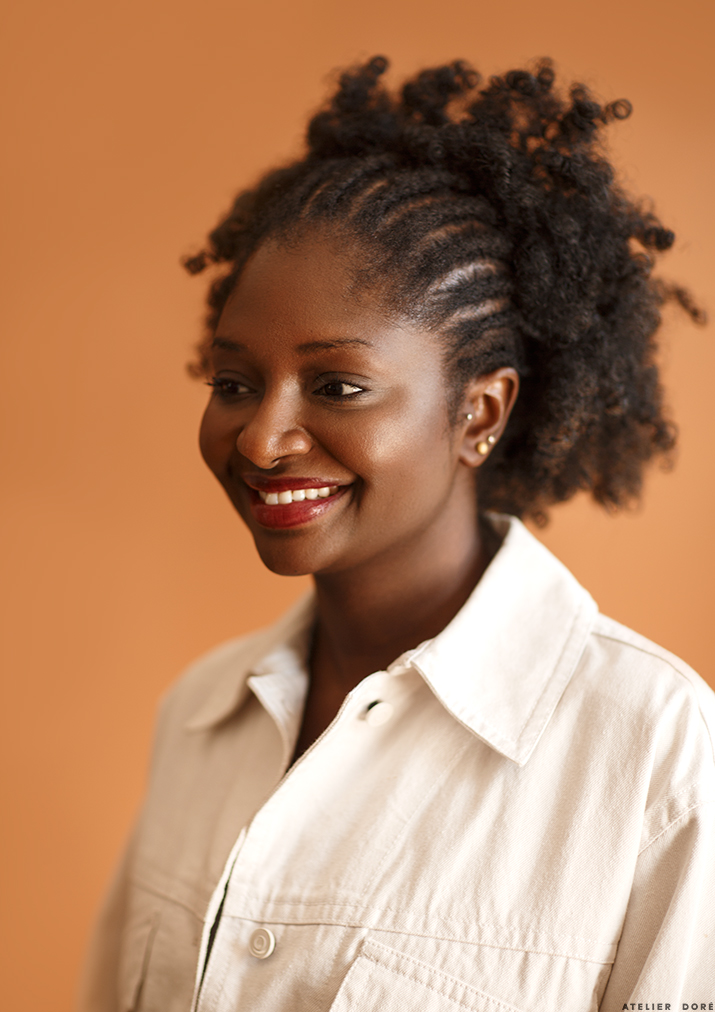

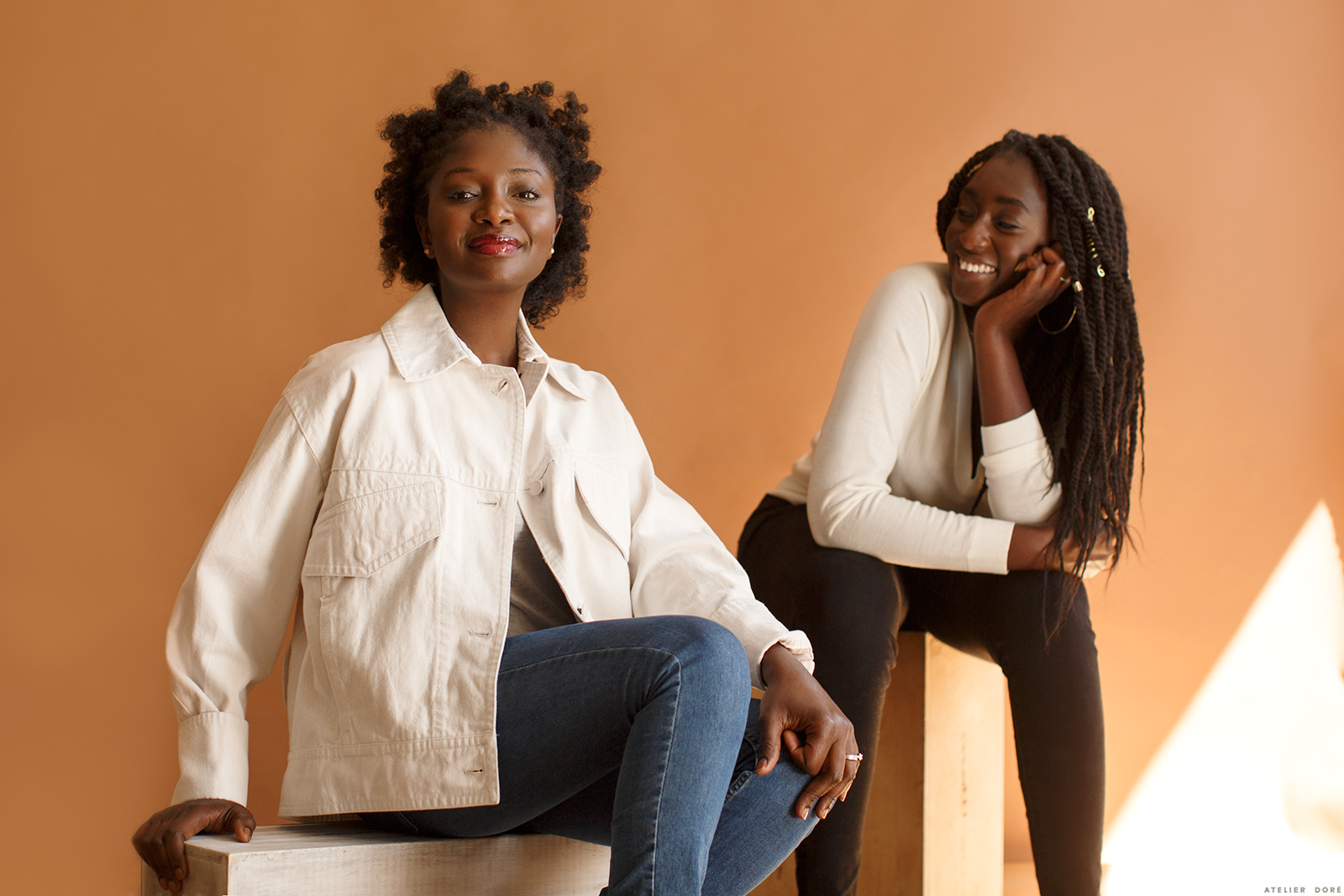
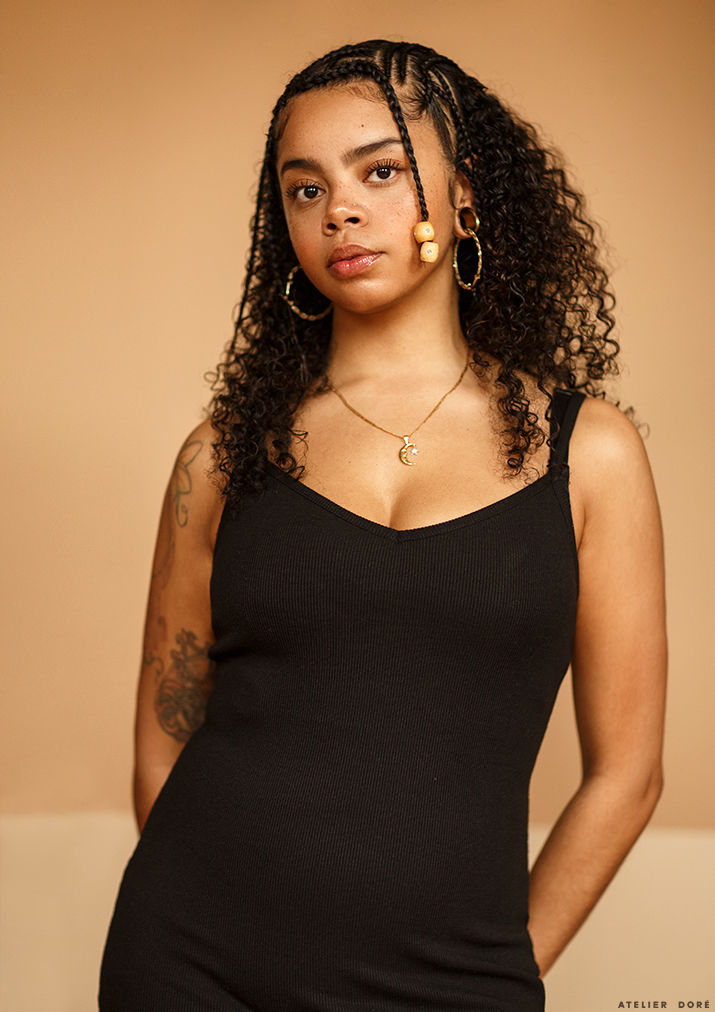

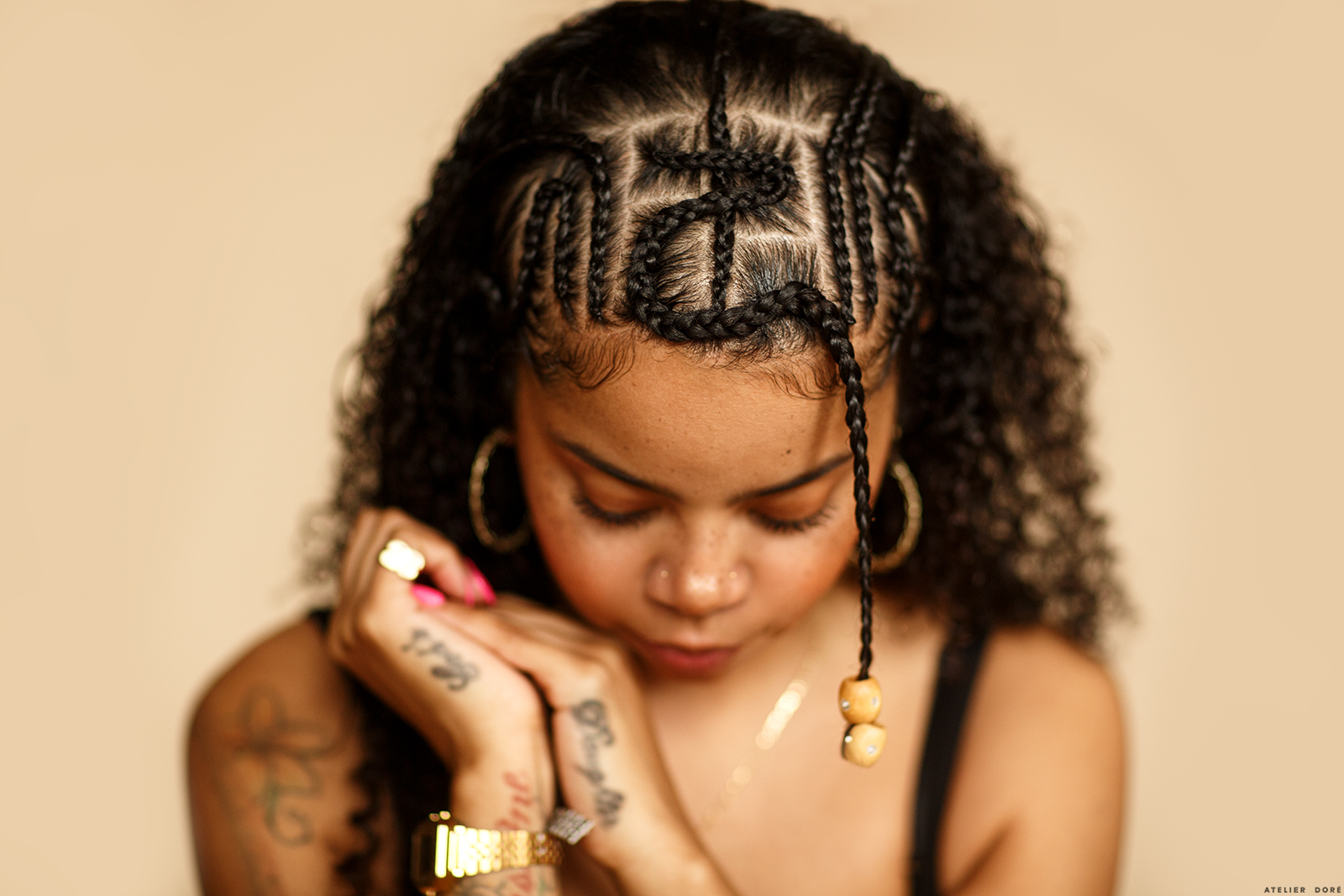
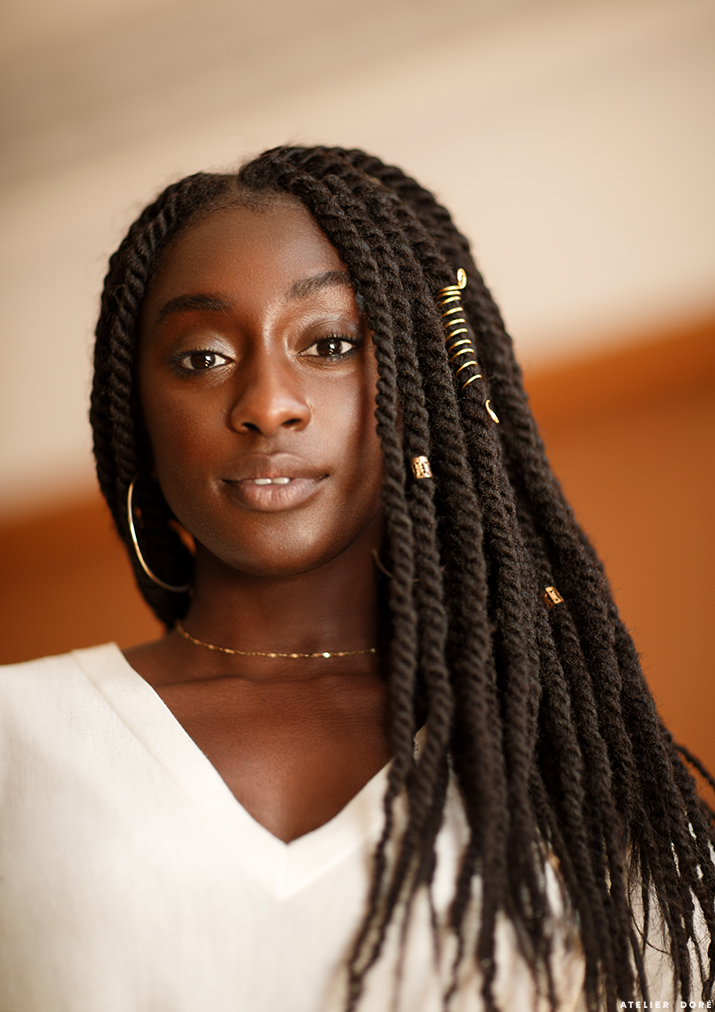

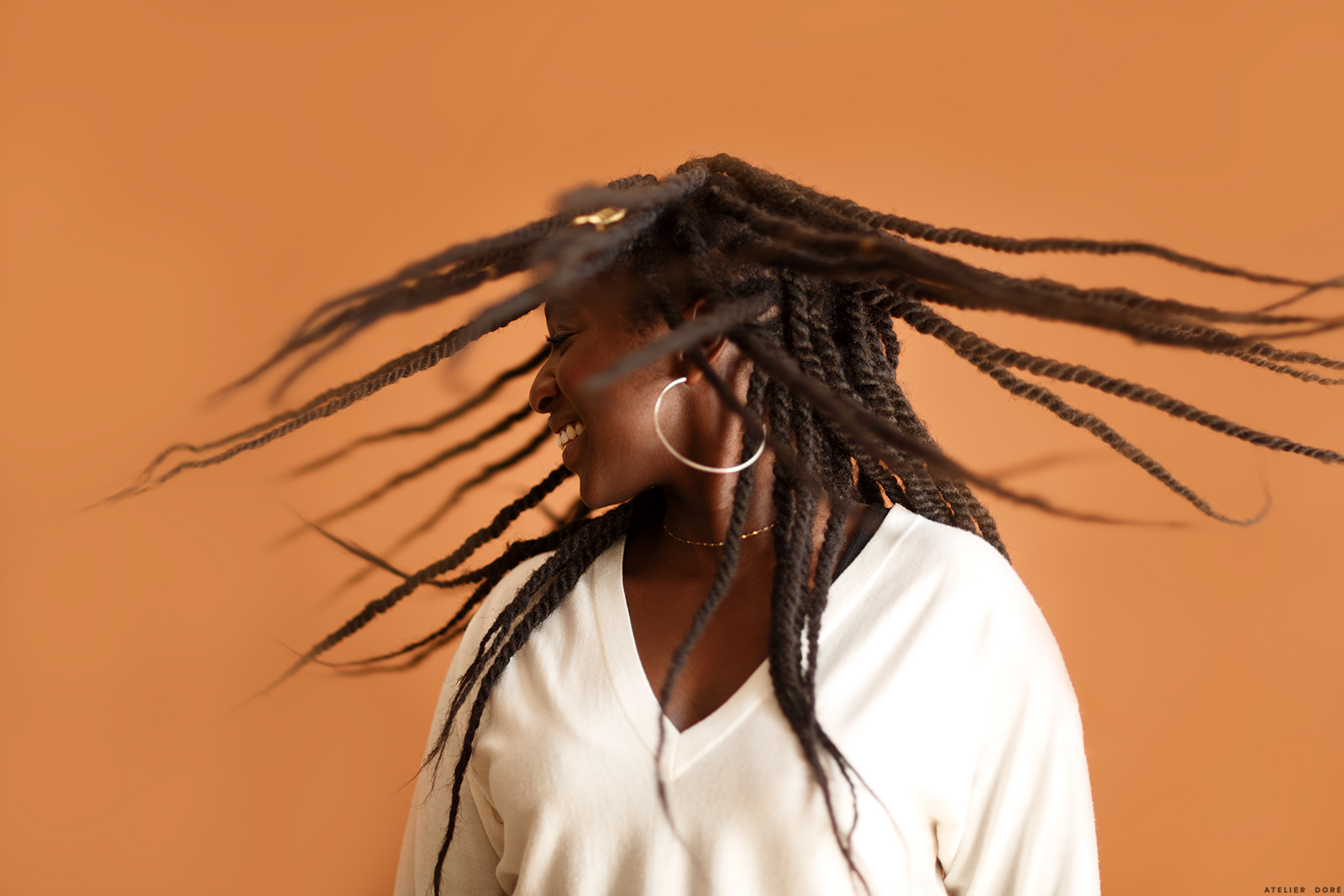
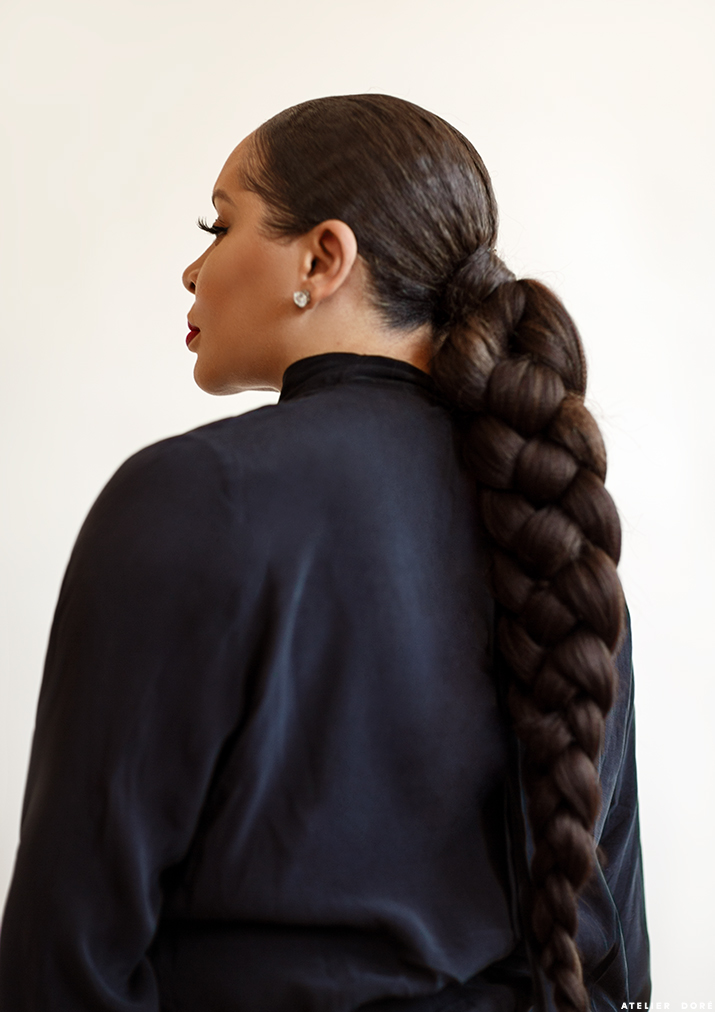

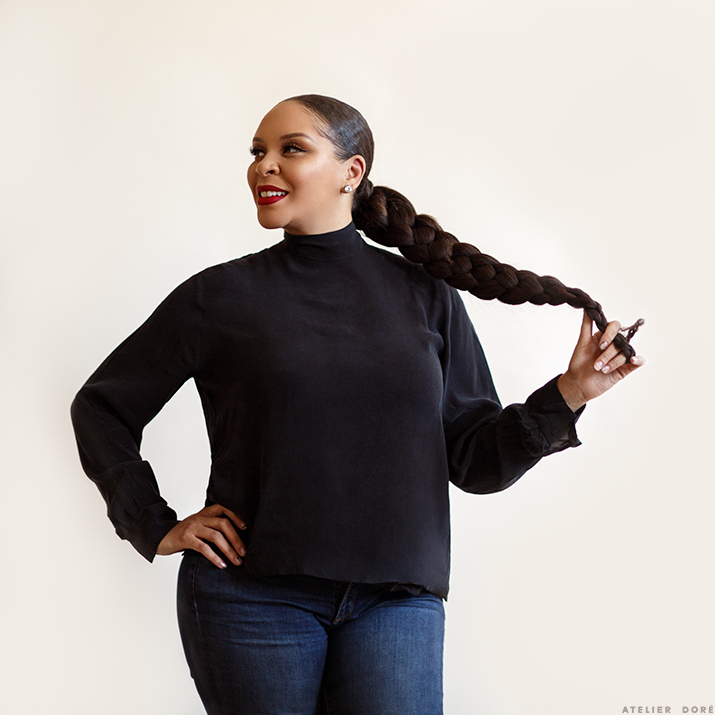


























































WOW!!! It reminds me of when I was a child. We did a lot of braiding (and I’m white, not that it’s of any importance, do have big hair, and curls, and blond since I became gray). Sometimes I braid for fun but never wear it in public anymore. Now I wonder ‘why not?”. I’m really in love with the last two pictures with the enormous braid. But it is all wonderful and very beautiful!!! Maybe I should draw something with a braid as subject ;-D @fabiduister
I am jealous! (White girl, grey hair, etc) I would SO culturally appropriate this if I could because it is so beautiful……:)
love this. i am black from the US and my hair was in braids for most of my child hood. It was braided without braid hair back then. I loved having my hair braided in various styles and that no one would need to style my hair for a few weeks.
I love how you told the story of braids. As an AA woman, braids mean so much to our culture. It is so expressive and a great representation of our beauty.
Thank you so much for this article, as a French white woman I truly feel ignorant, never knew braids were so important. Thanks for showing us how diverse beauty can be. These women are beautiful.
thank thank thank you. Very rarely do I see blog post about something i can truly connect with when it comes to beauty.
Greatly appreciated.
Wow what an inspiring post!
This was such a great feature. These women are so beautiful and tell a beautiful story.
How much I loved this article from start to finish… There aren’t enough words in the English language. This article makes me feel so proud.
What a great story! Love the idea of braids being an armor of protection.
On a fashion note – love that white denim jacket that Astou is wearing – can you share the brand?
Hi Kim! The jacket is from Vince.xx
As a middle aged AA woman – what a joy it is to finally see our hair appreciated –
Just think laws are NOW being passed for what grows out of an AA woman’s naturally to not be discriminated against in the workplace.
Right! The fact that a law has to be enacted to allow AA women and WoC to wear the hair how it comes out of their head is ridiculous to me.
Love this story so so much! Thanks for sharing, as always. <3
I am so glad you are also feauturing black women in your stories. And this is beautiful of course!
Wow, I never realized wearing braids was considered ‘unprofessional’?? Living many years in London with so many ethnicities and so many many MANY styles of Afro hair.. wonderful to see what the girls in my office would turn up with next!! Love articles like this where people’s stories just speak for themselves, no other commentary needed :)
Just beautiful! No words, but beautiful. This website continues to be my daily dose of inspiration.
I am a black girl and i had a big cut. Now i desperately want to grow my hair and start braiding.
What routines can i use to grow my hair faster
This is a great story. I appreciate the stories shared by these lovely women.
I am white, but my hair is ultra thick, coarse, curly/frizzy and difficult to manage. I live in a warm, humid climate, and I would love to wear cornrows or twists. I don’t desire these styles due to “trendiness”, rather, I see them as a way to manage my difficult hair in a difficult climate. To the amazing braid artists in this story, would I be seen as being guilty of cultural appropriation? I ask this question with all due respect.